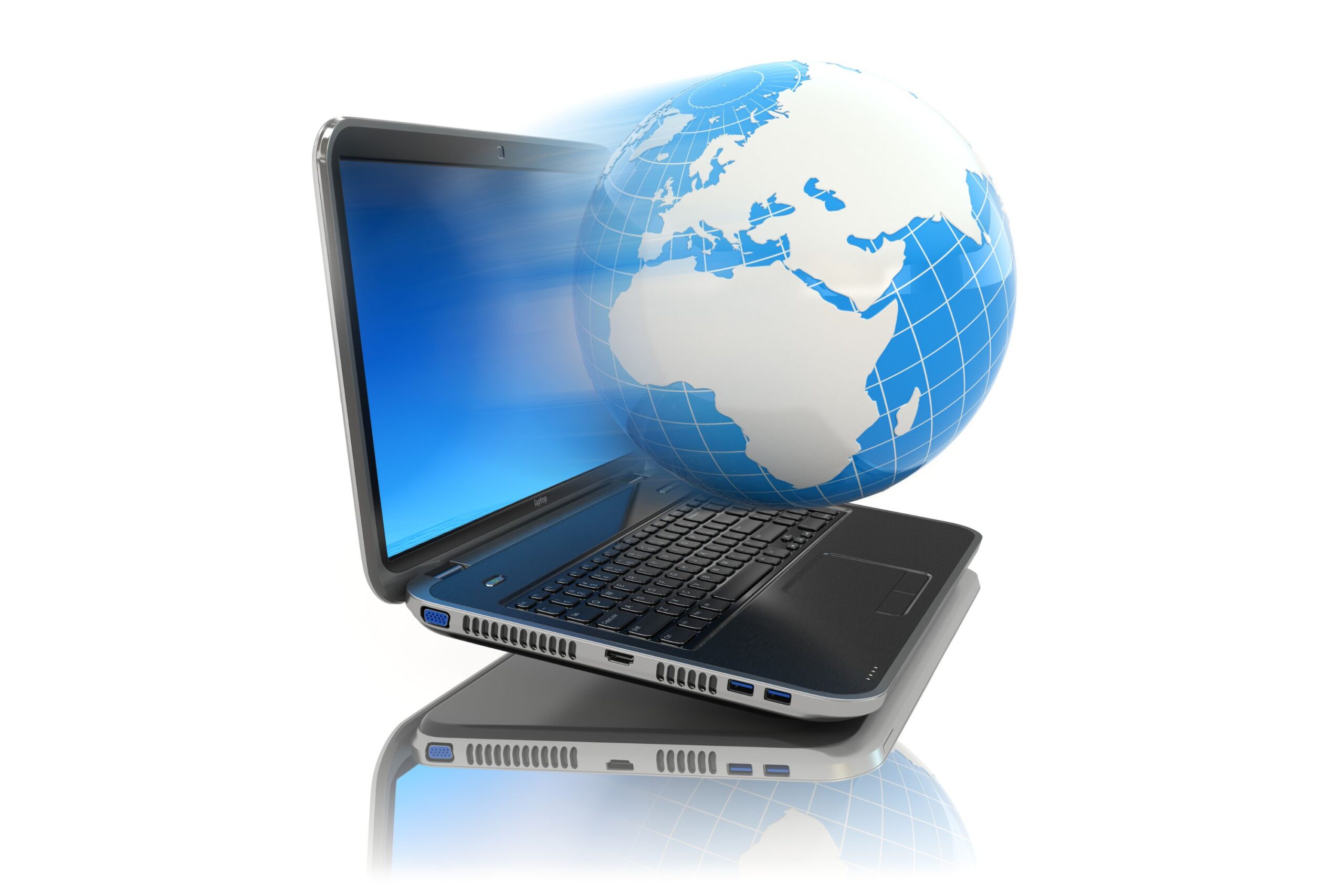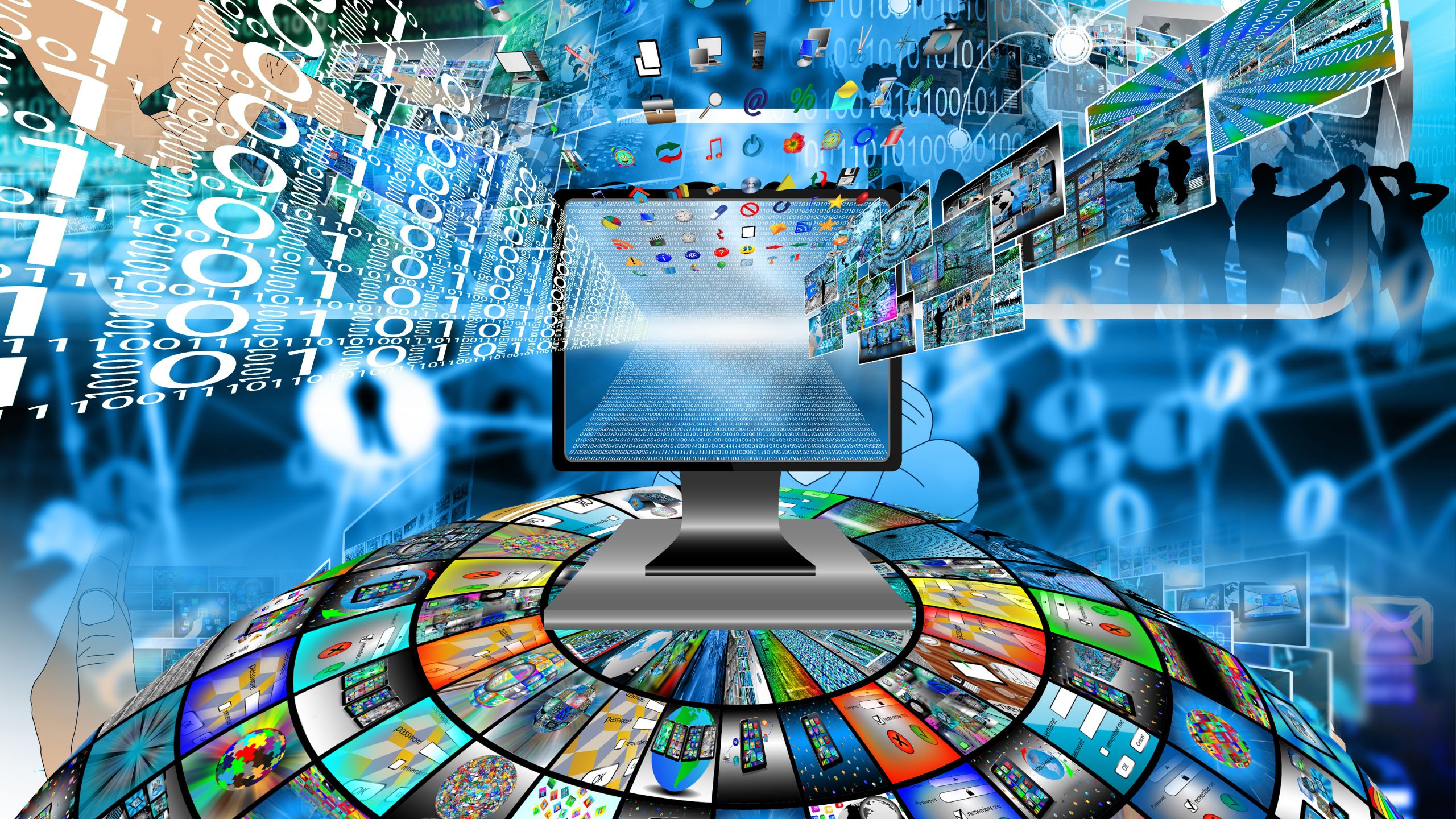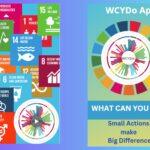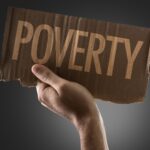For our 200th Newsletter, and in the spirit of being a Digital Community Interest Company, we invited our favourite Tellus Blog Author – Eliza – to write about the ever-growing power of the internet and whether it helps or hinders social progress.
The internet reminds me of the economy. It doesn’t really exist unless people play. You can’t see the internet, in the same way you can’t see stocks or shares, but we know they exist because we use the internet to trade, interact, share information and then before we realise it, we’re hooked. Often our livelihoods depend on it. Yet the only thing controlling it is us.
They say humans were toolmakers and developed language which evolved us beyond other species. We carved spears, built the wheel and discovered fire. So, what now? Have we simply replaced spears for iPhones, sign language for Emojis and fire for WiFi? (Okay, maybe not quite but you get my drift.)
Despite the internet not being as real as the trees outside our windows, the push of the wind or our loved ones’ touch, we arguably engage with it more. Why?
Let’s break it down.
Community or control?
In 2021, whistle-blower Frances Haugen, a former Facebook employee exposed how the ‘the social network’s algorithm amplified misinformation.’ Algorithms decide what you see on your newsfeed to keep you scrolling. It can also lull you into the trappings of your own echo chamber.
Here’s my best shot at a light-hearted example with low-level knowledge: if you enjoyed watching videos of unlikely but oh-so-cute friendships between dogs and cats, then it’s likely these would crop up on your newsfeed again and again.
Good thing, right?
What if you engage with videos sprouting harmless but traditionalist views… which overtime becomes subtle-racism, then morphs onto toxic fascism and eventually lands you in a dark corner of the internet conversing in downright hate-speech? Harmful right?
Haugen testified: “In some cases, this dangerous online talk has led to actual violence that harms and even kills people.”
If you’re on your phone for hours a week, that can become your understanding of the world.
According to the New Scientist, content is more likely to be engaged if we respond with anxiety or anger, rather than what makes us happy.
So that, combined with algorithmic echo-chambers, creates a group-think mentality, illusion and division.
Could this be a good thing?
On the flip side, you have “community”. Facebook, Reddit, Twitter, LinkedIn and Instagram which can connect you – find your tribe, water your interests and make you feel more connected to the human experience… uploaded!
So long as we don’t identify with groups, it could be a good thing.
But one to keep an eye on.

Democracy or surveillance?
It’s no longer “the golden olden days” of national personalities on the radio, select news rags and a few dominant news channels (that have subtle political alignments and corporate sponsorships!).
It’s still a path. But now we can collect news from a wide range of channels, independent news outlets and social-media friends. We have access to the world wide web of information… so does that make it democratic by default?
It’s raised our consciousness on social issues and disparities. Examples include the #MeToo movement which saw women and survivors speak out against sexual misconduct and #BlackLivesMatter which saw an exposing video go viral and consequently inspired a social progression. Podcasts, TikTok and YouTube have been major contributors to counter-culture perspectives.
It hits the marks for reduced inequalities, gender equality, and therefore decent work and economic growth (indicators featured in the Sustainable Development Goals).
However…
In the Netflix documentary – The Social Dilemma – former tech experts from companies such as Google and Twitter provided testimonies about how data was used. It revealed that every second you spend looking at something online, the technology is learning more about you, so it can essentially sell “you” for companies to advertise to. The general takeaway being: if the product is free, it’s because you’re the product.
Tristan Harries, a former Google employee described mobile phones as “slot machines that command attention and endlessly distract”.
Sure, your newsfeed may have yummy recipes or the newest car model you like, but when they have that information on you, they’re able to use it in other ways.
- Investigations have examined whether consulting firms were used in the Brexit referendum to persuade the politically indifferent demographic to vote Brexit by manipulating information on their newsfeeds.
- According to Reuters, “Cambridge Analytica, which was hired by US President Donald Trump’s 2016 election campaign, was closed down in 2018 following a scandal over mining of Facebook Inc User data.”
It has since been speculated that this same data mining has been used for other major events.

Neighbours or narcissists?
Internet content is VAST – from Petitions to Porn and all stops in between!
As you’re reading this article from WhatCanYouDo, it’s probably safe to assume that you’re a humanitarian person with a mission to help. You may be into the world of petitions, fund-raising, social causes – and I’ll go out on a limb and say – possibly even adopting a meat-free Monday routine!
The internet is great for reaching a large audience to bring attention to things that need action. We can use the internet as a tool to be friendly neighbours, and even activists. We’re able to put our names and voices to resistance. This democratic sharing is like “neighbourhood watch in the cloud”.
You, reading this now, is a clear example of that.
But just like neighbours, sometimes humans can develop the “grass is greener” attitude. Ego cleverly wraps itself around our phones and into our minds. Social media alone has seen cyber-bullying, privacy leaks and increased anxiety in young people.
Could this be due to social media “Influencers”? “Cancel Culture”? When “likes” and “follows” quantify how interesting you are: could this be the age of narcissism?
When it comes to our wellbeing (an SDG indicator), it’s important to remain healthy and happy. Circling back to those trees I mentioned at the beginning, it’s crucial to engage with our real surroundings. If you care for the world and people, start with yourself.
Observe your relationship with the internet: see it as a tool to help. But if we become the tool to advance profit, data collection and ego, it’s time to digitally detox!
What do you think? What’s been your experience with the internet? Get involved in the discussion!
Eliza
July 2022
Do you agree? Tell us what you think – email: tellus@whatcanyoudo.earth or via our “Social Media Channels” (Top Right of our landing page)
“tellus” is a Latin word meaning “Earth” eg Tellus Mater the ancient Roman Earth Mother Goddess







